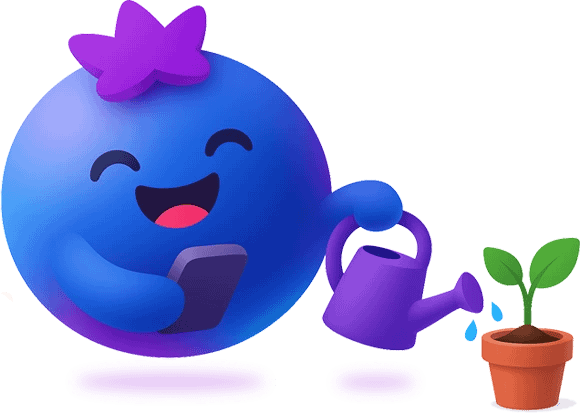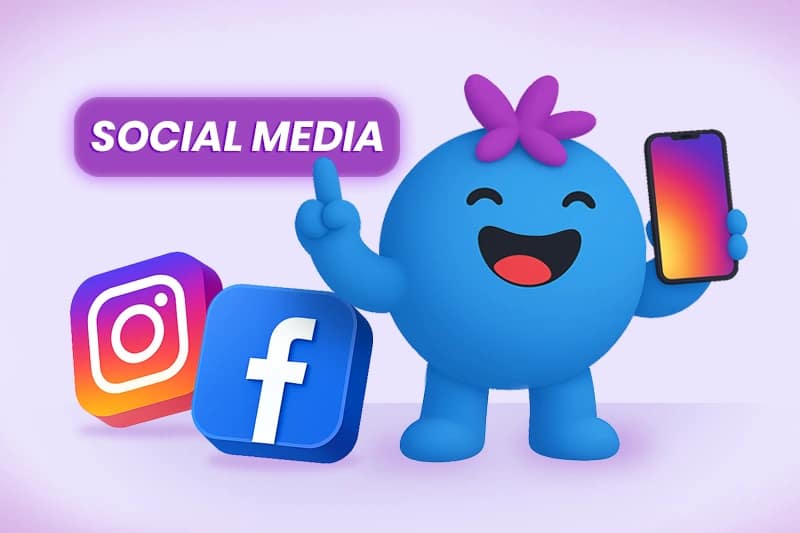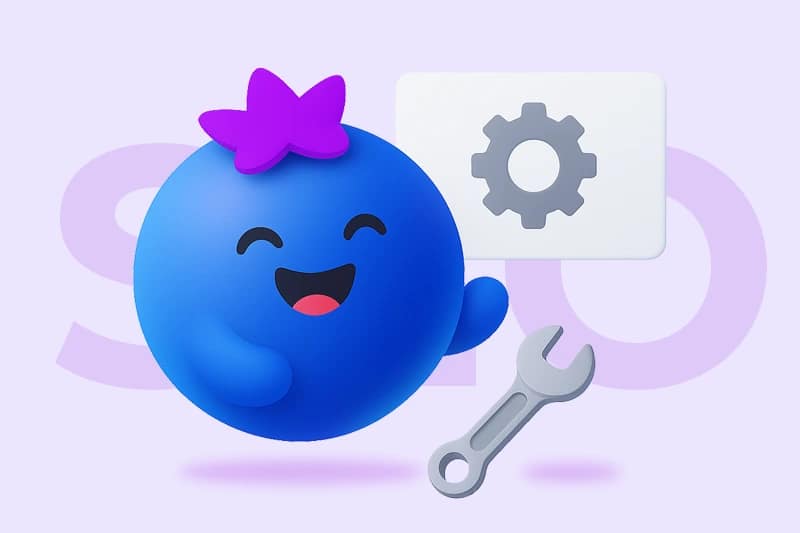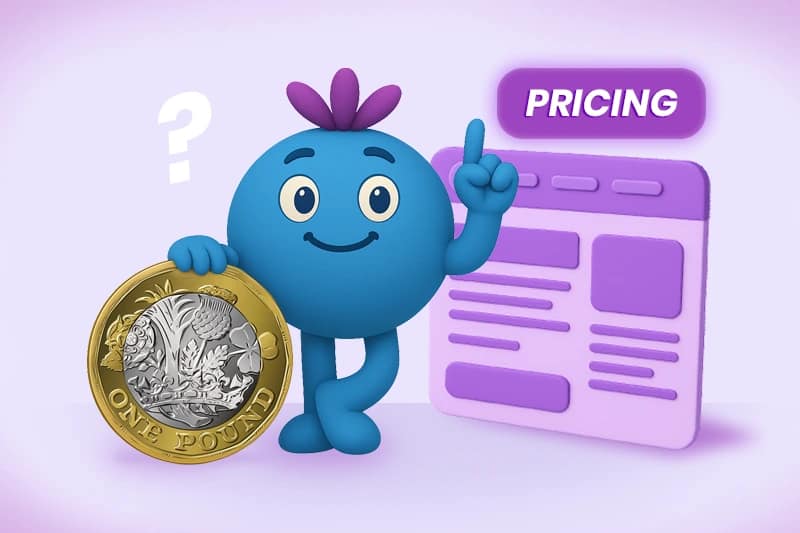Choosing between Facebook vs Instagram for business has become one of the most common marketing dilemmas in 2025.
Both platforms dominate the digital landscape, yet they serve different audiences, behaviours, and goals. If you run a small business in the UK, understanding the difference between Facebook marketing and Instagram promotion can determine how effectively you attract new clients and build brand awareness online. Facebook remains a powerful platform for local reach, community building, and targeted advertising — ideal for service-based businesses like salons, cafés, or local shops.
Instagram, on the other hand, thrives on visuals and storytelling, making it perfect for lifestyle brands, e-commerce, and creative entrepreneurs.
In this guide, we’ll compare Facebook and Instagram marketing strategies, highlight the pros and cons of each, and help you decide which social media platform is better for your business in 2025.
Audience and Reach – Who Uses Each Platform?
When comparing Facebook vs Instagram for business, one of the first things to consider is who actually uses each platform.
Understanding audience demographics helps you decide where your message will perform better — especially if your goal is local reach, brand awareness, or sales.
Facebook’s audience in the UK remains the most diverse and wide-reaching.
With over 35 million active users, it attracts adults aged 25–54, including decision-makers, homeowners, and parents — people who are most likely to spend money locally.
This makes Facebook the best option for service-based or B2C businesses such as taxi companies, beauty salons, restaurants, or real estate agents.
Instagram’s audience, by contrast, is younger and more engagement-driven.
The platform dominates among users aged 18–34, who value aesthetics, trends, and personal connection with brands.
If your business sells lifestyle products, fashion, beauty, or experiences, Instagram marketing gives you higher engagement rates and brand visibility.
In short:
- Choose Facebook for broader local reach and community building.
- Choose Instagram if your business relies on visuals, design, and emotional storytelling.
Both platforms can work together — but success depends on how well you match your content to your target audience.
Marketing Tools and Advertising Options
When comparing Facebook vs Instagram for business promotion, the biggest difference lies in how each platform handles marketing tools and advertising.
Both are managed under Meta Business Suite, but they serve slightly different purposes — and knowing these nuances helps small businesses in the UK make smarter decisions.
Facebook Ads – precision and local targeting
Facebook remains one of the most powerful advertising platforms in the world.
Through Facebook Ads Manager, you can create campaigns focused on leads, traffic, engagement, or conversions — with advanced targeting options such as location, interests, job titles, or behaviour.
For local businesses, this means you can reach people within a few miles of your store or office, making Facebook ideal for promoting services like beauty salons, restaurants, or taxis.
Instagram Ads – visuals and brand identity
Instagram advertising focuses on visual storytelling.
Formats like Stories, Reels, and Carousel posts help brands showcase products creatively and connect emotionally with audiences.
While Facebook targets intent, Instagram builds desire — perfect for fashion, lifestyle, travel, and food brands.
Reels and interactive content often deliver higher engagement, even with smaller budgets.
The power of cross-promotion
Because both platforms are connected under Meta, your campaigns can run simultaneously on Facebook and Instagram, using shared budgets, analytics, and remarketing audiences.
For many UK small businesses, combining both is the most effective way to increase reach, maintain brand consistency, and convert followers into customers.

Engagement and Content Performance
When it comes to engagement, Instagram clearly wins in 2025.
Its algorithm prioritises visual storytelling and community interaction, rewarding brands that post regularly and use modern formats like Reels, Stories, and carousel posts.
The average Instagram engagement rate across the UK is around 1.2%, while Facebook’s organic reach continues to decline below 0.5%.
However, Facebook still plays a key role for community-driven businesses that rely on comments, shares, and direct messages.
Facebook Groups, Events, and Page posts are perfect for building trust and long-term relationships with local customers.
In contrast, Instagram’s strength lies in discovery — helping users find new brands through hashtags, Explore, and influencer collaborations.
To maximise engagement on both platforms:
- Post consistently but focus on quality visuals and short captions.
- Use video formats (especially Reels) to increase visibility in Meta’s algorithm.
- Encourage interaction through polls, questions, and quick replies.
- Combine organic posts with small, well-targeted paid boosts.
Ultimately, Instagram builds attention, while Facebook builds relationships — and both are crucial for sustainable brand growth in the UK market.
Facebook vs Instagram for Business – Costs and ROI
When deciding between Facebook and Instagram for business, one of the most important factors is the cost of advertising and the potential return on investment (ROI).
Although both platforms use the same Meta Ads Manager, their audiences and ad performance metrics can differ significantly.
Advertising costs
On average, Facebook ads are slightly cheaper in the UK. The cost per click (CPC) typically ranges between £0.40 and £0.80, depending on industry and audience.
Instagram ads, however, tend to have higher engagement but also a slightly higher CPC – usually £0.70 to £1.20. The visual nature of Instagram makes it better for brand awareness campaigns rather than direct sales.
Return on investment
Facebook often delivers stronger ROI for service-based businesses (like real estate, education, or local services), thanks to detailed targeting options and lead generation forms.
Instagram performs better for e-commerce and lifestyle brands, where visuals, storytelling, and influencer marketing drive impulse purchases.
Key takeaway
For most small businesses in the UK, combining both platforms is the smartest move:
run Facebook campaigns for conversions and community engagement, and Instagram campaigns for brand awareness and visual appeal.
This dual strategy ensures consistent traffic, improved brand recall, and measurable results across both audiences.
Facebook vs Instagram for Business – Comparison Table
Both Facebook and Instagram are powerful tools for business growth, but each platform works best for different goals. Below you’ll find a quick overview of how they compare in 2025 across the most important marketing aspects.
| Feature | ||
|---|---|---|
| Audience size (UK) | ~35 million active users | ~30 million active users |
| Main audience age | 25–54 years | 18–34 years |
| Best for | Local services, B2B, community engagement | E-commerce, lifestyle, fashion, beauty |
| Ad cost (CPC average UK) | £0.40–£0.80 | £0.70–£1.20 |
| Organic reach | Low but stable (good for Groups & Events) | High for Reels and Stories |
| Content type | Links, text, video, long-form content | Reels, carousels, short videos, visuals |
| Analytics & insights | Advanced via Meta Business Suite | Visual-focused analytics, engagement-heavy |
| Best use case | Building trust, customer loyalty, leads | Increasing brand awareness and visual reach |
*Data based on Meta UK Business Insights 2025 and SocialBerry internal reports. The most effective strategy for UK businesses combines both platforms in one content calendar.

Which Platform Builds Stronger Brand Awareness and Engagement?
When it comes to building brand awareness, Instagram has a clear advantage.
The platform’s visual-first design and features such as Reels, Stories and Highlights help brands showcase their identity in a creative and emotional way.
People use Instagram to explore, follow trends and engage with brands they genuinely like — not just to read updates.
On the other hand, Facebook remains unbeatable when it comes to community engagement.
Its Groups, Events, and Messenger integration allow small businesses to build long-term relationships with customers and turn them into loyal advocates.
Local companies — from restaurants and gyms to repair services — still benefit from Facebook’s ability to keep conversations going.
Real-world insight
- Instagram = awareness, aesthetics, discovery
- Facebook = trust, community, conversion
For most small and medium UK businesses, the ideal solution is to combine both:
use Instagram to attract attention and shape your brand image, and Facebook to retain your audience and drive action through regular posts, discussions and targeted ads.
Facebook Ads vs Instagram Ads – Performance and Targeting in the UK
Although both platforms share the same advertising system — Meta Ads Manager — their results can differ significantly depending on your business type and audience.
Understanding these differences can help you spend your ad budget more effectively.
Audience targeting
Facebook Ads offer more detailed audience segmentation. You can target users based on age, location, behaviour, interests, relationship status, or even job title.
This makes Facebook ideal for service-based businesses — from real estate to education — where precise targeting leads to measurable conversions.
Instagram Ads, on the other hand, work better for visually driven industries.
They rely more on interest-based and engagement-based targeting, attracting people through design, storytelling and lifestyle content rather than text-heavy offers.
Ad performance and engagement
In the UK market:
- Facebook delivers higher click-through rates (CTR) for B2B and service ads, especially when combined with lead forms and Messenger campaigns.
- Instagram shows higher engagement rates (likes, saves, comments) but a lower direct conversion rate.
Instagram users are more likely to follow a brand or explore its content — while Facebook users are more likely to take immediate action, such as booking a service or clicking through to a website.
Key takeaway
If your goal is direct conversions, Facebook Ads usually outperform Instagram.
But if your goal is brand recognition and engagement, Instagram’s visuals and Reels will drive better organic and paid reach.
Which Platform Is Better for Your Business in 2025?
There’s no universal winner in the Facebook vs Instagram debate. The right choice depends on your goals, industry and audience. If you need strong local visibility, community trust and direct conversions — Facebook remains the go-to platform. If your brand relies on visual storytelling, lifestyle content and creative engagement — Instagram delivers faster reach and awareness.
The most effective approach for UK businesses is to combine both platforms within one social media marketing strategy. Our team at SocialBerry can help you design and manage campaigns that connect, convert and grow your brand — from visuals to ads and analytics.
Discover Our Facebook Management OfferDon’t Be Green in Social Media Marketing







